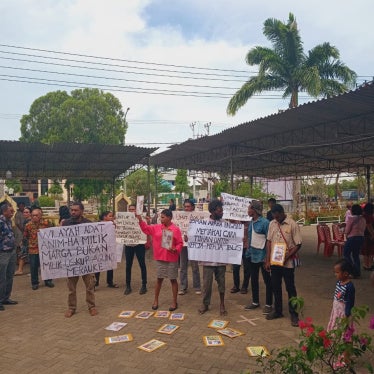NEW YORK: The United States, as a major target, has taken the lead in combating terrorism. But the global outpouring of sympathy that followed the attacks of Sept. 11, 2001, is giving way to growing resentment of the United States and reluctance to join the fight. How was this goodwill depleted so quickly?
Part of the reason lies in how terrorism is being fought. Because terrorism is antithetical to human rights, the values of human rights should be understood as an antidote to the view that attacking civilians is legitimate, that the ends justify the means. But in too many places the Bush administration sees human rights not as an essential tool in its fight against terrorism but as an obstacle. That is dangerously counterproductive. It undermines the public support needed to defeat terrorism.
Curbing terrorism requires the help of people in countries where terrorists reside. They are the ones who must cooperate with police inquiries rather than shield terrorist activity. They must take the lead in dissuading would-be terrorists. But if they see Washington embracing governments that repress them, they hardly feel inclined to lend their support.
In Pakistan, for example, General Pervez Musharraf has entrenched military rule. But when asked about this trend, President George W. Bush said, "My reaction about President Musharraf, he's still tight with us on the war against terror, and that's what I appreciate." Not surprisingly, anti-American political parties were the big winners in Pakistan's recent parliamentary elections.
In post-Taliban Afghanistan, the Bush administration has refused to provide active support to an expanded international peacekeeping force. Instead, outside Kabul, it is trying to buy security on the cheap by allying itself with abusive warlords such as Ismail Khan. The Herat-based warlord has used death threats, detention and torture to stamp out all dissent, muzzle the press and bundle women back into their burqas.
In Indonesia, the abusive military has been a large factor driving people toward violent extremism. But the Bush administration is pressing to reinvigorate ties with the military despite the lack of accountability for its serious abuses and its support for militia groups which foster instability.
The Bush administration even opposed a civil suit brought in a U.S. court on behalf of victims of military atrocities, ostensibly because it might discourage Indonesia from cooperating in the war on terrorism.
The same pattern arises in America's own treatment of terrorist suspects. The Bush administration has unjustifiably rejected the Geneva conventions for prisoners from the war in Afghanistan. It has misused the "enemy combatant" designation for criminal suspects at home. It has reportedly used "stress and duress" interrogation techniques. It has threatened to use substandard military tribunals. It has abused immigration laws to deny criminal suspects their rights.
The Bush administration is fighting terrorism as if human rights were not a constraint.
At the global level, the administration seeks universal enforcement of laws against terrorism but opposes enforcement of universal human rights norms. It has declared a virtual war on the International Criminal Court. It tried to block creation of an international inspection regime to prevent torture. It opposed a United Nations resolution on the need to fight against terrorism consistently with respect of human rights.
America, of course, is far from the worst offender. But because of America's extraordinary influence, the Bush administration's willingness to compromise human rights while fighting terrorism sets a dangerous precedent.
It will not work for the Bush administration to be only against terrorism. It will have to stand for the values that explain what is wrong with attacking civilians - the values of human rights.
There have been hints of such a positive vision, such as in the administration's National Security Strategy. But this rhetorical embrace of human rights has translated only inconsistently into U.S. policy. Clearly America and its allies must take extra security measures. But an anti-terrorism policy that ignores human rights is a gift to the terrorists.
A successful anti-terrorism policy must endeavor to build strong international human rights norms and institutions, not provide a new rationale for avoiding and undermining them.






